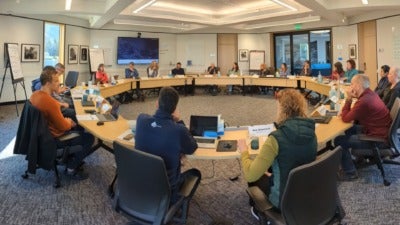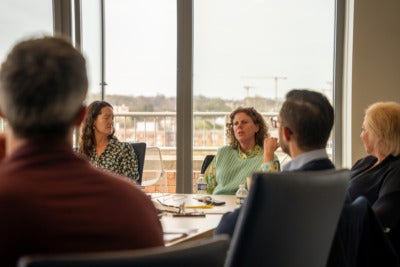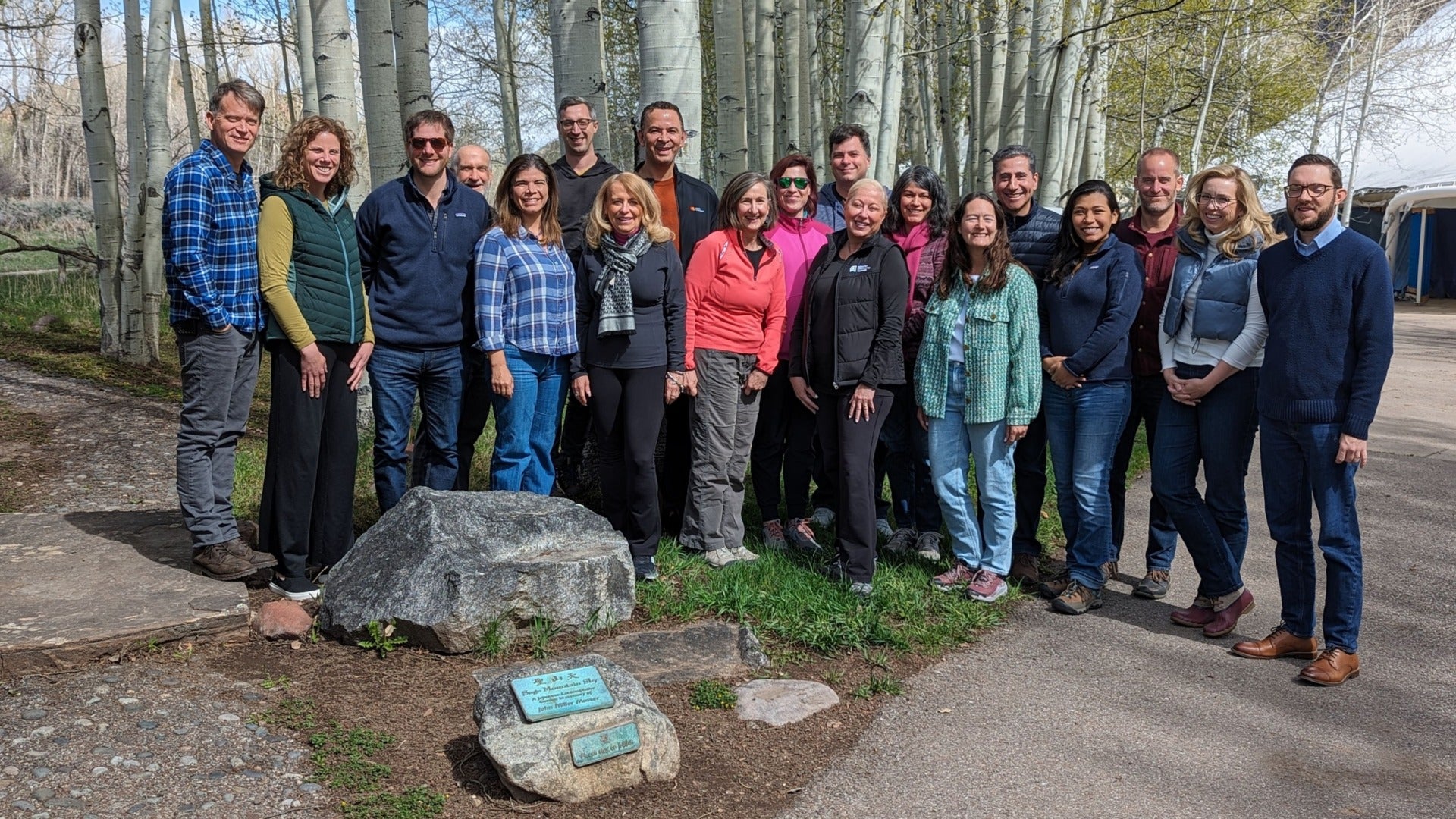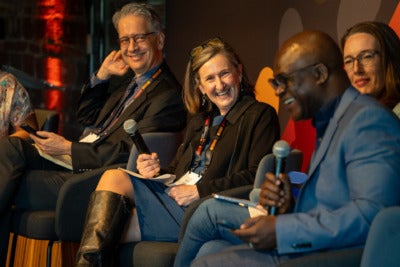At the Aspen Institute’s Business Ownership Initiative (BOI), peer learning is one of the core tools we use to drive innovation and collaboration. As businesses, nonprofits are working to solve difficult problems with resources that often limit their ability to invest in critical organizational needs. And leadership can be lonely. We have found that creating a trusted space for leaders to come together to look to the future, share challenges and lessons, and identify new ideas and solutions is a powerful tool for accelerating their collective impact. This spring, BOI has hosted three events that illustrate the value of peer learning and collaboration.
1. Microfinance Impact Collaborative Annual MeetingThe most recent was the annual in-person meeting of our Microfinance Impact Collaborative (MIC), held in early May in Aspen, Colorado. Created a decade ago, the MIC comprises six of the largest community development financial institution (CDFI) microlenders. Five years ago, we created the idea of Scale Link as part of our work to create a solution for the unique capitalization and liquidity challenges faced by CDFI microlenders. This year, we worked with the Scale Link team on additional solutions to support the balance sheets of CDFI microlenders. We also discussed the perennial dilemma of providing affordable, inclusive, and responsible financial services at a large scale (and whether doing so can ever be profitable), how members are dealing with the pushback against racial equity initiatives, and the role that the federal State Small Business Credit Initiative (SSBCI) can play in expanding the ability of CDFIs to reach underserved entrepreneurs.

2. Mastercard Center for Inclusive Growth Grantee Learning Summit
In mid-April, we partnered with the Mastercard Center for Inclusive Growth to host its Grantee Learning Summit on the first day of its Global Inclusive Growth Summit. More than 90 of the Center’s grantees from across the globe came together to share insights about their work to advance more inclusive economies. We dove into topics including the threats and potential market opportunities that climate change creates for small firms, and the role of data and generative artificial intelligence in the work of social impact organizations. I had the opportunity to join Payal Dalal of the Center for Inclusive Growth, Juan Navarette of Fundación Capital, Helena Leurent of Consumers International, and Uyi Stewart of data.org in a conversation about how leaders of social impact organizations are navigating in these rapidly changing times. See photos here.
3. SSBCI Innovation GroupIn March, we partnered with Scale Link to host our SSBCI Innovation Group as part of our work with the Initiative for Inclusive Entrepreneurship. The IIE is working to ensure that SSBCI funds reach socially and economically disadvantaged individuals, with a special focus on business owners of color. Our collective effort in this endeavor has been to help CDFIs access these federal funds to support their lending in amounts of less than $100,000. We brought together senior lending and operations leaders from our six MIC members to design the ideal program structures for CDFIs that want to originate these loans at high volumes. From that effort, we are working on a set of design memos that we will release in June.
In each of these events, we were impressed and energized by the ideas and insights that emerge as leaders have time to step back from their day-to-day work and take time to reflect on both what they have learned and what they anticipate in the future. We will be sharing more in the months to come from our work convening and learning with CDFIs and small business support organizations – stay tuned!This was originally published in the Economic Opportunities Program newsletter. Join our mailing list here for more updates from BOI.



